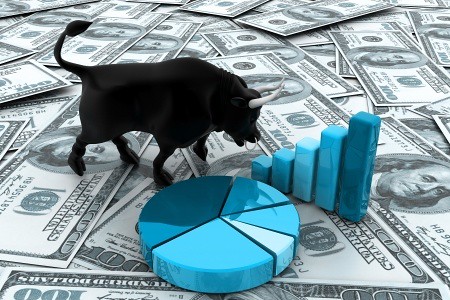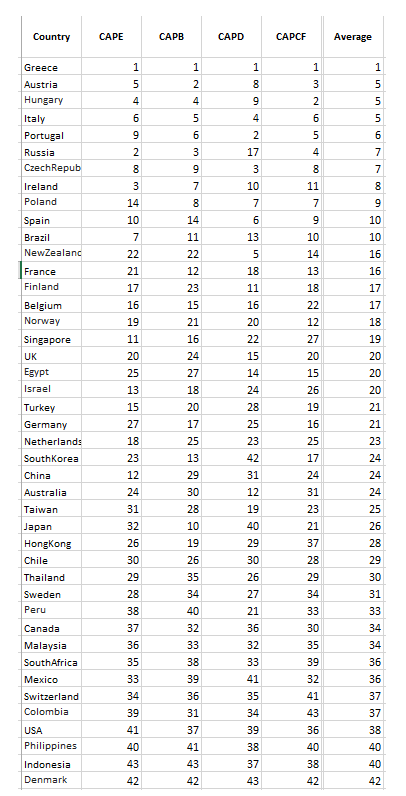
“We are about to enter the greatest bull market in 85 years.”
CNBC 6/8/14
“Bull Has Legs to Run Another 10 Years.”
Bloomberg 6/23/14
Anyone remember the book Dow 36,000 published in 1999 shortly before the dot-com bubble burst? Fifteen years later Dow is now at approximately 17,000.
Is the US Stock Market Expensive, Cheap or Fairly Valued?
To help answer that question I’m going to use the data provided by Meb Faber’s World Beta Blog in the chart below. It lists the cheapest (Greece) to the most expensive (Denmark) countries in the world by the average of four valuation indicators (1) – CAPE, CAPB, CAPD, CAPCF.
Where is the US? The 38th most expensive market of the 42 countries listed. That is not saying that US stock in the bubble territory of the late 90’s, but it is definitely not cheap.

Source: http://mebfaber.com/2014/09/08/the-cape-ratio-doesnt-work/
Why Look at these Specific Valuation Metrics?
Studies have shown these metrics to be excellent indicators of long-term returns. Cheap countries tend to have higher long-term returns, while expensive countries tend to underperform the global equity markets.
What do you notice about the chart above? Countries such as Greece, Italy, Portugal and Ireland are the cheapest, but they also have a significant amount of negative press. As Warren Buffet once said, “Be greedy when others are fearful and fearful when others are greedy.”
Are people excited about the four countries just listed? No, which means it may be time to consider investing there.
In the US are people talking about no end to this bull market, as seen in the opening quotes to this article? Yes! Therefore, it is time to get a little nervous.
How do you implement an investment strategy that takes advantage of these types of opportunities in the market?
Contact us to review your porfolio and establish a long-term investment strategy.
(1) CAPE = Cyclically Adjusted Price Earnings Ratio, CAPB = Cyclically Adjusted Price to Book Value, CAPD = Cyclically Adjusted Price to Dividend Ratio and CAPCF = Cyclically Adjusted Price to Cashflow
Copyright: cooldesign / 123RF Stock Photo

